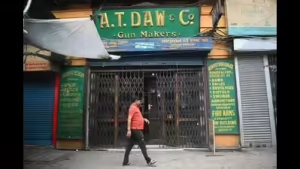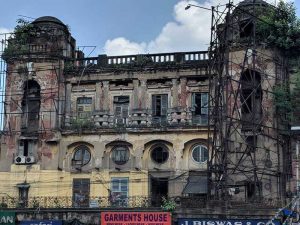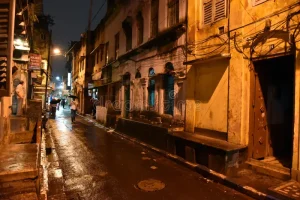Kolkata Arms Dealers Stop Accepting Used Guns as Owners Rarely Reclaim Them
Kolkata, West Bengal: In the bustling lanes of Kolkata, a longstanding tradition has quietly faded. For decades, numerous arms and ammunition dealers—some tracing their roots back to the British Raj—offered temporary safekeeping for licensed firearms. Owners, often anxious about security during elections or uncertain times, would deposit heirlooms or hunting rifles in trusted shops. Yet in recent years the practice has ground to a halt as too many depositors never return.
Storied Dealers Step Back from Tradition
Shops like Ashoo Tosh Daw & Co and J Biswas & Co had offered this service faithfully for years. Shopkeepers would store firearms the way people entrust important photographs—treated with care and trust.

But the trust was no longer reciprocated. Guns—some family relics passed down through generations—remained unclaimed for years despite repeated notices and police involvement.



The heartbreak of seeing prized possessions abandoned in their stores finally pushed these dealers to stop accepting used guns altogether.
East India Arms Co Keeps Holding On
Among the few holding onto this tradition is East India Arms Co on J L Nehru Road. The shop still accepts firearms at a rate of Rs 200 per month. Around 30 guns—mostly shotguns and rifles—now sit in its secure custody. The staff follow strict protocol: they verify valid licenses at deposit and only return guns if the license remains active at pick-up. They also submit weekly inventory reports to police headquarters. But with every uncollected weapon the shop grapples with space shortages and growing frustration.
When Ownership Goes Missing
The consequences of unclaimed guns go beyond space. Dealers cannot legally sell these firearms. The Arms Act mandates that any unclaimed gun can only be transferred to a police warehouse with court approval. This puts dealers in a difficult position—they must hold onto unused firearms indefinitely or enter into long legal processes. In a market where trust once expressed in stored weapons has turned into legal burden both dealers and the authorities face an unfair stalemate.
Emotional and Historical Weight
Some of the guns abandoned in these shops carry deep emotional history. They served as family mementos a reminder of ancestral pride. Their silent presence in store racks speaks of stories untold—of owners once spirited about their past now unreachable. For shops like Ashoo Tosh Daw, handling these guns was never just business—it was part of preserving familial narratives.
A Sign of Times Changing
This shift signals more than just a procedural change. It reflects how societal attitudes toward ownership responsibility have shifted. The casual abandonment of items as significant as licensed firearms reveals a disconnect. It suggests that the bonds of trust that once existed between community members and local dealers have frayed in subtle but impactful ways.
Looking Ahead: Closure, Or Redemption?
For now the tradition fades as fewer dealers continue the service. The hope is that families will return for their ancestors’ firearms and honor the promise they once made. Or else the state’s legal system must step in to take custody responsibly. Meanwhile the loss of this service underscores the need for stronger community reminders about ownership responsibility and respect for heritage items.

Conclusion: When Trust Meets Reality
What was once a warm symbol of community trust—depositing a firearm at a familiar shop—has now become a burden. Dealers feel let down. Families lose their heirlooms. And Kolkata, with its layered history, witnesses yet another tradition slipping into memory. While the law provides a procedural exit, only renewed civic responsibility can truly restore the balance between trust and accountability that once bound community and kin.
Also read: https://channel6network.com/hockey-india-president-tirkey/

